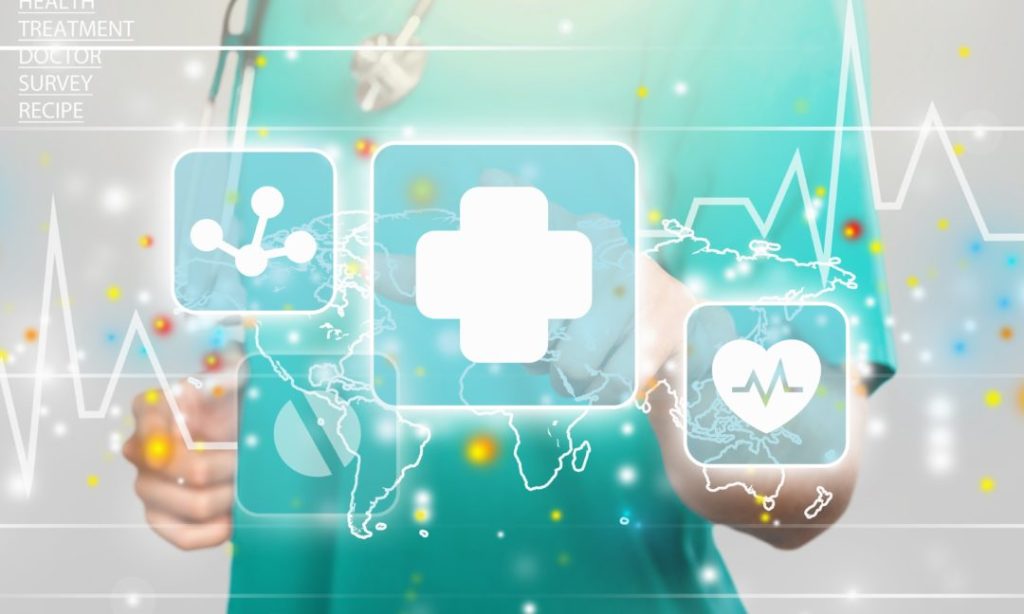Unlocking Efficiency and Accuracy – The Role of Advanced Medical Coding
In the quest to revolutionize healthcare, advanced medical coding emerges as a formidable agent of change. “Revolutionizing Healthcare with Advanced Medical Coding” takes us on a journey through the corridors of innovation, unveiling how cutting-edge coding technology is reshaping healthcare practices, enhancing patient care, and streamlining administrative processes.

The essay delves into the inefficiencies of traditional manual coding methods, where human error and time constraints could lead to inaccuracies in diagnosis and treatment documentation. The rise of advanced medical coding technology, however, marks a turning point. The adoption of electronic health records (EHRs) and electronic medical records (EMRs) ushers in a new era of precision and accessibility.
With the integration of advanced coding systems, the accuracy of medical documentation reaches unprecedented heights. The essay navigates through the labyrinth of coding standards such as ICD-10 and CPT, showcasing how these standardized codes simplify communication among healthcare providers, ensure accurate billing, and facilitate data-driven decision-making.
Furthermore, the essay explores the revolutionary potential of natural language processing (NLP) and machine learning in medical coding. These technologies empower machines to interpret human language and extract vital medical information from clinical narratives. The result is a synergy between human expertise and technological precision, yielding a coding process that is not only efficient but also remarkably accurate.
As the healthcare landscape transforms, “Revolutionizing Healthcare with Advanced Medical Coding” underscores how the marriage of medical knowledge and technological innovation paves the way for enhanced patient care, reduced administrative burdens, and a healthcare ecosystem that operates with unparalleled efficiency.
From Paper to Pixels: The Digital Leap in Advanced Medical Coding
The digital revolution has transcended industries, and healthcare is no exception. “Revolutionizing Healthcare with Advanced Medical Coding” delves into the metamorphosis from paper-based medical coding to a digitized realm where technology is not only a tool but a transformative force.
The essay navigates through the historical landscape, where manual coding required exhaustive efforts, often prone to errors and delays. However, the advent of advanced medical coding technology, catalyzed by the rise of EHRs and EMRs, has paved the way for a more agile and precise healthcare ecosystem.
The digital shift is not merely about efficiency; it’s also about accessibility. The essay emphasizes how EHRs empower healthcare providers to access patient information seamlessly, facilitating accurate coding and decision-making. Moreover, the integration of Computer-Assisted Coding (CAC) tools leverages artificial intelligence to support human coders, augmenting their capabilities and ensuring coding accuracy.
This transition from paper to pixels isn’t without its challenges. The essay explores issues such as interoperability, data security, and the need for standardized coding practices in a digitized landscape. The transformation necessitates collaboration among healthcare professionals, IT experts, and regulatory bodies to ensure the seamless integration of technology.
In essence, “Revolutionizing Healthcare with Advanced Medical Coding” illuminates how the digital revolution is reshaping healthcare documentation and coding practices, underscoring the immense potential for enhanced patient care and operational efficiency.

Precision Medicine and Beyond: Advanced Medical Coding’s Impact on Patient Care
The paradigm shift in healthcare, catalyzed by advanced medical coding, extends beyond administrative streamlining – it reaches the very heart of patient care. “Revolutionizing Healthcare with Advanced Medical Coding” dives into the profound impact that coding technology has on precision medicine, clinical decision-making, and ultimately, patient outcomes.
The essay unravels how advanced coding systems contribute to precision medicine, a revolutionary approach that tailors medical interventions to the unique genetic makeup of individuals. By accurately coding diagnoses, treatments, and genetic information, healthcare professionals can customize treatment plans, minimize adverse reactions, and optimize therapeutic efficacy.
Furthermore, the essay delves into the role of predictive analytics powered by coded medical data. As healthcare providers analyze patterns and trends, they gain insights into disease trajectories, enabling early interventions and preventive measures. The symbiotic relationship between coding technology and analytics redefines the healthcare narrative from a reactive to a proactive approach.
Additionally, the essay highlights how advanced coding technology facilitates clinical decision-making. With access to accurate and comprehensive patient information, clinicians can make informed choices, avoiding misdiagnoses and recommending the most effective treatments.
In essence, “Revolutionizing Healthcare with Advanced Medical Coding” paints a portrait of healthcare’s transformation into a precision-driven landscape, where the marriage of medical knowledge and technological prowess empowers clinicians to deliver personalized, effective, and patient-centric care.
Empowering the Future: Advanced Medical Coding’s Role in Healthcare Innovation
The tapestry of healthcare innovation is woven with threads of advanced medical coding technology. “Revolutionizing Healthcare with Advanced Medical Coding” unveils how this technological marvel isn’t just a solution for today’s challenges; it’s a catalyst for future possibilities.
The essay dives into telehealth, an innovation accelerated by global events. Telehealth’s reach extends beyond geographical boundaries, bringing healthcare to the comfort of patients’ homes. However, this new realm of care necessitates advanced coding solutions that capture the nuances of virtual consultations, remote diagnostics, and digital prescriptions.
Moreover, the essay navigates through the potential of artificial intelligence-driven predictive modeling. By analyzing coded medical data, AI can forecast disease trends, optimize treatment plans, and contribute to population health management. The fusion of coding and predictive analytics envisions a future where healthcare is proactive, preventative, and finely tuned.
The essay also explores the ethical considerations inherent in this rapid technological transformation. Data privacy, patient consent, and the responsible use of AI are integral components of the healthcare ecosystem’s evolution.
In conclusion, “Revolutionizing Healthcare with Advanced Medical Coding” isn’t just a tribute to current advancements; it’s a glimpse into an empowered future. The tapestry of healthcare innovation is woven with threads of coding technology, threading the narrative of patient-centric care, operational excellence, and a healthcare landscape poised for unprecedented possibilities.
